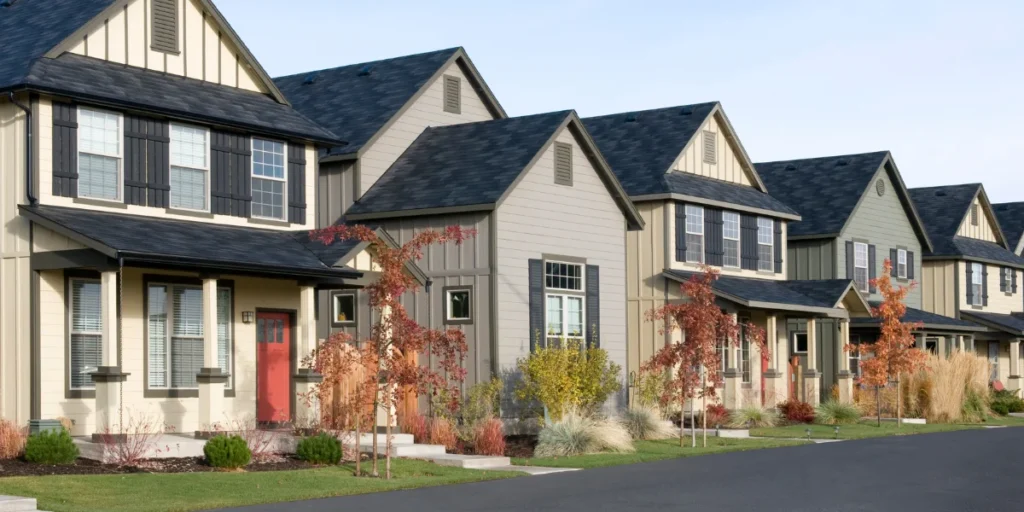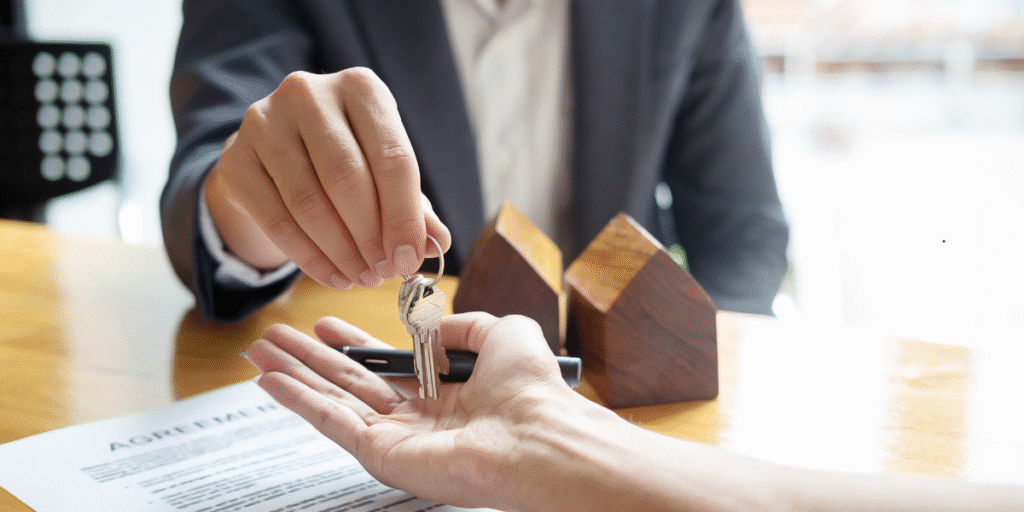Over 75% of homes in Australia have three or more bedrooms, despite the fact that over 60% of households only have one or two persons. This creates a startling housing contradiction. This mismatch has sparked controversial discussions about a potential spare room tax Australia, targeting underutilised living spaces in private homes.
The concept has generated significant attention in recent Australian tax news, particularly as the country grapples with a housing shortage estimated between 200,000 and 300,000 dwellings. Furthermore, the situation becomes more complex when considering that 84% of homes owned by older Australians are underused, despite 80% of this demographic relying on the age pension and more than 25% living in poverty. Consequently, any changes to tax policies in Australia affecting property usage could have far-reaching implications for millions of homeowners.
This guide examines what the proposed spare room tax Australia might mean for Australian property owners, why it has triggered a national backlash, and what homeowners should prepare for as 2025 approaches.
The Spare Room Tax Proposal: What It Is and Why It Matters
The spare room tax proposal emerged in 2025 as a contentious policy idea aimed at addressing Australia’s housing shortage. At its core, this concept represents a significant potential shift in how property ownership might be taxed in the coming years.
What Does the Proposal Suggest?
The proposal, put forward by analytics firm Cotality, suggests imposing taxes on homeowners with unoccupied bedrooms in their properties. This idea stems from research revealing a striking mismatch in Australia’s housing market: just over 60% of houses are occupied by only one or two people. At the same time, more than three-quarters of properties have three bedrooms or more. The tax would essentially make it “more expensive to have more housing than you need and cheaper to live in smaller housing”. Cotality’s head of research, Eliza Owen, noted that although there’s nothing inherently wrong with having spare bedrooms, there could be “inefficiencies in the way housing is being allocated”.
Who Would It Affect Most?
Older Australians, particularly empty nesters, would bear the brunt of this proposed tax. Many are “asset-rich and cash-poor,” with over 25% living in poverty despite owning their homes. The proposal assumes these homeowners could either downsize or rent out spare rooms to address housing shortages. However, this presents a complex challenge since many older Australians maintain spare bedrooms for visiting family, home offices, or future care needs. Additionally, the proposal would impact families who maintain guest rooms or those who use extra bedrooms as functional spaces rather than sleeping quarters.
Why It Sparked National Debate?
The spare room tax proposal ignited immediate backlash across Australia. Critics pointed out several practical concerns:
- Many homeowners keep spare rooms for visiting family who live far away
- Newer homes often have smaller bedrooms that serve as storage due to limited space
- The real issue might be supply shortages (estimated at 200,000-300,000 dwellings) rather than bedroom allocation
Moreover, economists like AMP’s Shane Oliver described it as politically unfeasible, stating it “would cause a huge backlash politically as people often maintain spare bedrooms for visitors and it would be seen as a huge attack on empty nesters”. Instead, Oliver suggested “removing stamp duty to make it easier for empty nesters to downsize”. The debate essentially contrasts individual property rights against collective housing needs, raising fundamental questions about how Australia’s taxes should address housing affordability.
Although the Australian government insisted the idea remains in early consultation stages, its mere suggestion highlights the growing pressure to find solutions to the housing crisis through tax reform.
Public and Political Reactions to the Proposal

The controversial spare room tax proposal immediately triggered widespread reactions across Australia, with commentators from both sides of politics condemning the idea as government overreach.
Online Backlash and Media Coverage
Social media platforms erupted with mockery as Australians posted photos of their spare rooms alongside sarcastic captions such as “For lease: one cat’s bedroom”. Memes comparing the policy to Orwellian control quickly went viral, reflecting genuine public concern beyond the humour. Many Australians expressed practical objections:
- “I’ve worked hard for my home. I’m not renting out to anyone. My home is my safe place”
- “What about families who need a spare room for relatives visiting from interstate?”
- “Have you seen the size of new 3 and 4 bedroom houses? The extra ‘bedrooms’ are glorified cupboards”
One Sydney resident described it as “a distraction tactic” from deeper housing policy failures, while another pointedly asked, “How many people are renting Albo’s spare rooms?”
Expert Opinions From Economists and Builders
AMP Chief Economist Shane Oliver warned that the proposal would cause “a huge backlash politically” as it would be seen as “a huge attack on empty nesters.” He suggested that removing stamp duty would be a better approach to encouraging downsizing.
Equally, housing experts pointed out that empty bedrooms weren’t the root cause of the crisis. The Good Builder blog called it “a lazy idea that punishes lifestyle choices without adding a single new dwelling to the market”.
Government’s Mixed Signals on New Tax Rates in Australia
Notably, Prime Minister Anthony Albanese promised no new taxes before the 2028 election, telling ABC, “Academics talk in the academic world, what I do is live in the real world”. Nevertheless, Treasurer Jim Chalmers refused to rule out implementing such measures, stating it “remains to be seen”.
This contradiction prompted opposition MPs to demand clarity, with one quipping, “What’s next—taxing people for not eating enough at dinner?”
The Bigger Picture: Is Taxing Spare Rooms the Right Fix?
Beyond the heated debate about spare bedrooms lies a fundamental question: Would taxing unused rooms actually solve Australia’s housing crisis?
Australia’s Real Housing Supply Problem

The data reveal a genuine supply crisis. Currently, Australia faces a shortfall of 200,000 to 300,000 dwellings. In 2024, only 177,000 new homes were completed against an underlying demand of 223,000. Furthermore, projections indicate the country will fall approximately 262,000 dwellings short of the 1.2 million Housing Accord target by 2029.
The real constraints on housing supply include poor project feasibility, labour shortages, and limited affordable land. Indeed, the National Housing Supply and Affordability Council notes that “the single biggest constraint on supply currently is that many housing projects are not commercially viable”.
Why Downsizing Isn’t Always Easy
For older Australians, downsizing presents significant barriers:
- Emotional attachment to family homes and neighbourhoods
- Limited suitable housing options – only 16% of new Sydney apartments have three or more bedrooms
- Financial deterrents – high strata levies ranging from AUD 229.35 to over AUD 30,579.80 quarterly
- Pension impacts – selling a home can reduce age pension entitlements
Stamp Duty and Land Tax Reform
Economists overwhelmingly identify stamp duty as a more significant barrier than spare bedrooms. According to industry experts, replacing this “tax on moving” with a broad-based land tax could unlock mobility. Western Australia, Victoria, and Queensland have already expanded stamp duty concessions for downsizers in their 2025-2026 budgets, offering a promising alternative to penalising homeowners.
What Homeowners Should Know in 2025?

With the spare room tax debate ongoing, homeowners contemplating renting out unused spaces should understand the current regulations and protections available in 2025.
Current Tax Rules For Renting Out Rooms
Homeowners must include all rental income in their tax returns, including platform fees and cleaning charges. Fortunately, certain expenses remain deductible:
- Council rates and property insurance (proportional to rented area)
- Electricity, gas, and water costs
- Cleaning expenses and platform commissions
Interestingly, renting to family members under “domestic arrangements” often means income isn’t taxable at all. Otherwise, careful record-keeping becomes essential as the Australian Taxation Office actively receives data from sharing platforms to identify undeclared income.
You Might Also Be Interested In: 8 Essential Types of Insurance That Protect Your Future
How to Avoid Pension and CGT Issues
For pensioners, income from lodgers affects benefits differently:
- Accommodation only: 70% counts as income
- Bed and breakfast: 50% counts as income
- Full board: Just 20% counts as income
Crucially, rent from immediate family members (parents, children, siblings) doesn’t affect pension eligibility. Regarding CGT fears, they’re often overstated—the tax applies only to the portion of the home rented commercially and for the specific rental period.
Legal Tips For Safe Room-Sharing
Safety concerns remain paramount when sharing living spaces. Establishing clear house rules about behaviour, common areas, guests, and noise levels protects both parties. Formal agreements should cover:
- Payment arrangements
- Utilities responsibility
- Maintenance expectations
- Notice periods
Where to Find Reliable Tax News in Australia
To stay informed about potential changes, consider monitoring:
- The ATO website for official guidance
- CPA Australia resources
- Reputable financial advisors who specialise in property
Always verify information through multiple sources, given the evolving nature of Australian tax regulations.
Conclusion – Spare Room Tax Australia
The proposed spare room tax represents a contentious approach to Australia’s housing crisis. While proponents point to the mismatch between household sizes and dwelling capacities, critics rightfully question whether penalising homeowners truly addresses the fundamental supply shortage. Undoubtedly, any policy targeting property usage must balance individual rights with collective housing needs.
Australia faces complex housing challenges beyond bedroom allocation. The country currently lacks between 200,000 and 300,000 dwellings, with projections showing a significant shortfall against national targets by 2029. Therefore, solutions focused primarily on existing property utilisation might miss the bigger picture of supply constraints.
Alternatives such as stamp duty reform offer more practical approaches. Several states have already expanded concessions for downsizers in recent budgets, potentially unlocking mobility without punitive measures. Additionally, addressing barriers to downsizing—emotional attachments, limited suitable options, financial deterrents, and pension impacts—requires nuanced policy responses rather than broad taxation.
Homeowners should nonetheless stay informed about their options regarding spare rooms. Renting to lodgers carries specific tax obligations, though arrangements with family members often receive different treatment. Legal protections through formal agreements safeguard both parties when sharing living spaces becomes necessary.
The government’s mixed signals highlight the political sensitivity surrounding this issue. Though the Prime Minister has promised no new taxes before 2028, conflicting statements from other officials leave room for uncertainty. Consequently, property owners must remain vigilant about potential policy shifts affecting their homes.
At its core, this debate reflects more profound questions about housing affordability, intergenerational equity, and property rights. Rather than viewing spare bedrooms as the primary problem, policymakers might better serve Australians by focusing on comprehensive supply-side solutions, removing barriers to housing mobility, and creating incentives that respect homeowner choices while addressing genuine market inefficiencies.
Do I need to report income from renting out a spare room in my home?
Yes, you must declare all income from renting out a room, including fees for hosting, cleaning, and any compensation for damages. However, if you’re renting to immediate family members under a “domestic arrangement”, this income may not be taxable.
How might renting out a spare room affect my pension?
The impact on your pension depends on the type of arrangement. For accommodation only, 70% counts as income. For a bed and breakfast, it’s 50%, and for full board, just 20%. Importantly, rent from immediate family members doesn’t affect pension eligibility.
Will I have to pay capital gains tax if I rent out a room in my home?
Capital gains tax apply to the portion of your home that was rented commercially and only for the specific rental period. It’s not as extensive as many homeowners fear.
What legal precautions should I take when sharing my living space?
Establish clear house rules and create a formal agreement covering payment arrangements, utilities responsibility, maintenance expectations, and notice periods. This protects both you and your tenant.
How can I stay informed about potential changes to property taxes in Australia?
Monitor the Australian Taxation Office website for official guidance, consult resources from professional bodies like CPA Australia, and seek advice from reputable financial advisors specialising in property. Always verify information through multiple sources due to the evolving nature of tax regulations.






